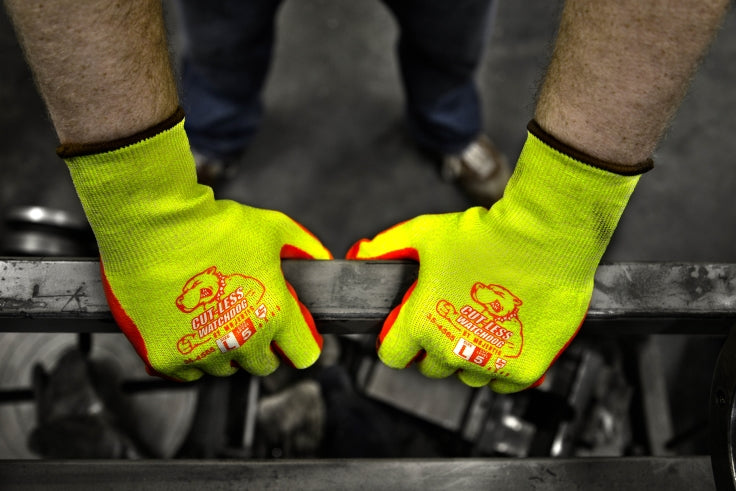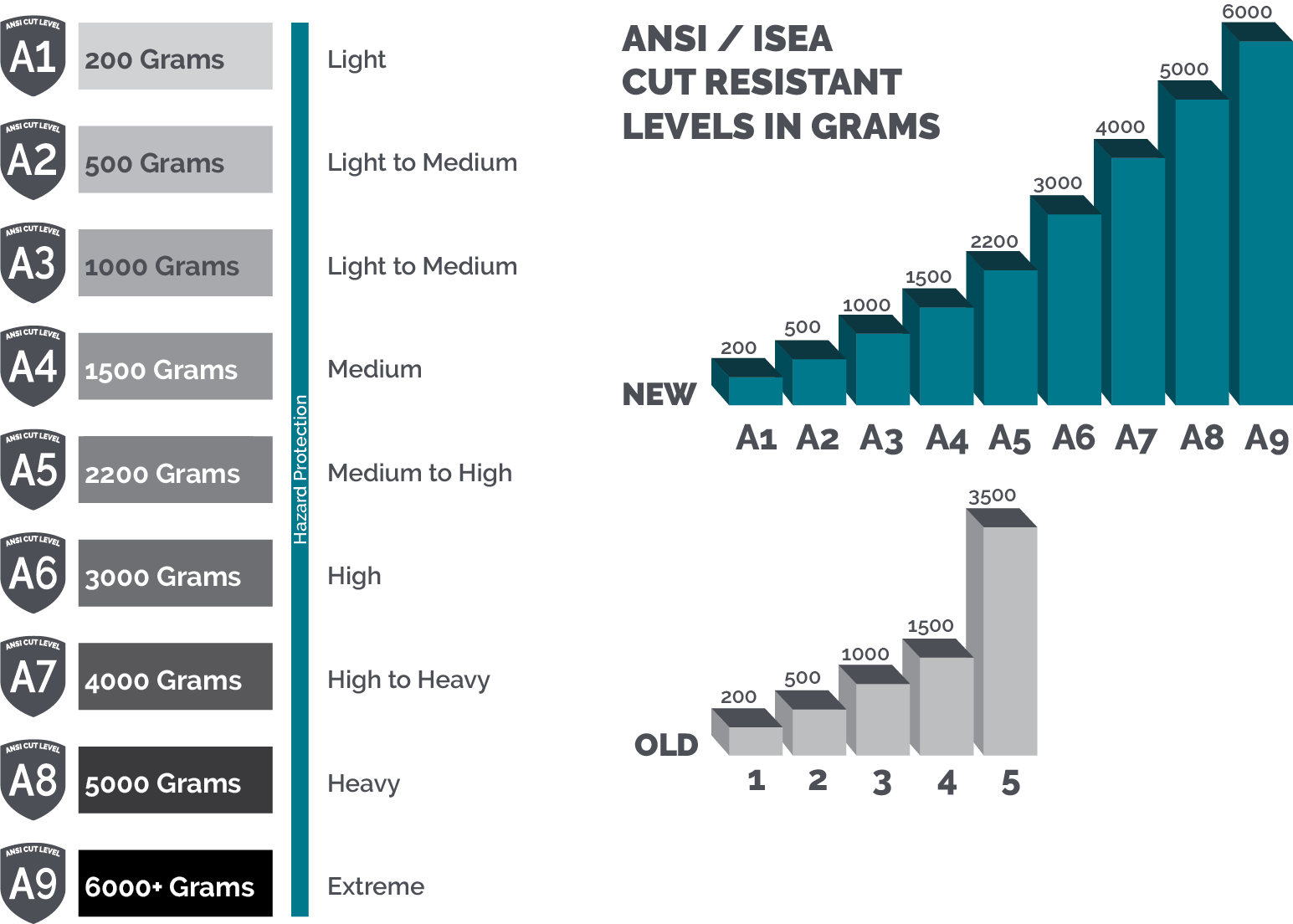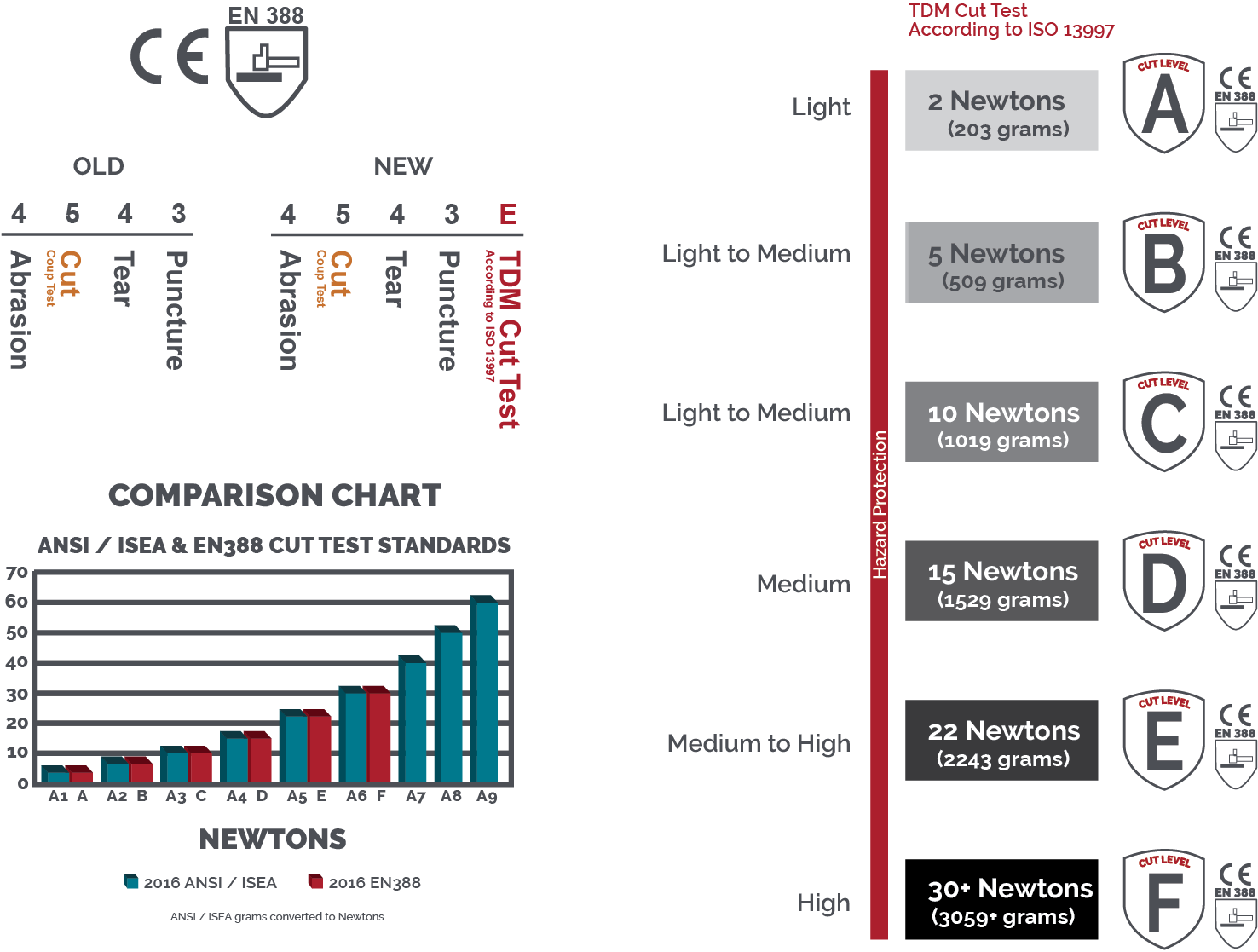
Standards in Cut Resistance - Majestic Glove
Hand injuries are among the most common work-related injuries – with many involving cuts or lacerations.
For safety managers tasked with choosing the best cut resistant hand protection for workers, two testing and classification standards exist: The American ANSI/ISEA 105 standard and the European EN 388 or CE standard.
Beginning in 2016, both the American ANSI/ISEA and the European EN388 standards are adjusting the way we classify cut protection.
ANSI/ISEA
The new ANSI/ISEA ASTM F2992-15 test requires the use of the TDM 100 Cut Test machine, which measures cut resistance at a distance of 20 millimeters with a straight blade – with the cut test results reported in grams and represented in 9 new levels.
These new protection levels replace the old 5 point scale you’re used to – and allows additional levels up to 6000 grams for higher cut resistant materials.

EN388/CE
The European EN 388 or CE standard will continue to use the Coup Cut Test but proposes using an additional cut test – the ISO 13997 cut test with a TDM 100 Cut test machine to accommodate limitations caused by the Coup Cut Test. This test will measure cut resistance at a distance of 20 millimeters with a straight blade – reporting the test results in newtons.
This standard adds an additional cut rate to its existing standard, with 6 levels ranging from A to F. These levels are approximate comparisons to the new ANSI/ISEA standard – levels A1 to A6.

